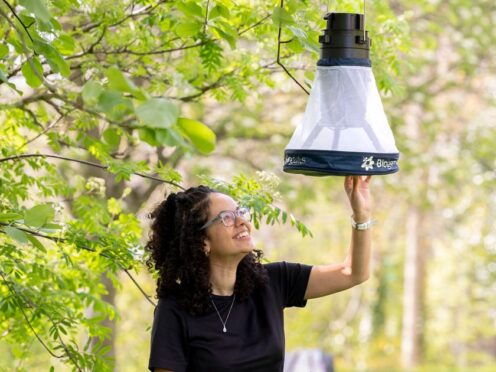Citizens scientists are being asked to join the search for mosquitoes in a bid to better understand the Scottish mosquito population.
Members of the public are being urged to register mosquito sightings and upload photos as part of Mosquito Scotland, a three-year project led by researchers at the University of Glasgow, which has been collecting data on Scottish mosquitoes for the past year.
Researchers are trying to establish which species of mosquito live in Scotland, where they can be found, and whether they currently carry any diseases, or could become infected by pathogens that could come to the UK with climate change.
They also want to establish whether bird populations in Scotland may be at risk of mosquito-borne pathogens such as Usutu Virus and avian malaria, as is the case for birds in England.
Project lead, Professor Heather Ferguson, said: “Although relatively low in abundance, mosquitoes have been present in Scotland for millennia, and are a natural part of our ecosystems.
“While they don’t present a risk to human health here currently, climate change could increase the risk of invasive mosquito species establishing in Scotland.
“It may also increase the risk for mosquito-borne diseases that are present in some other European countries to establish.
“By sharing information on when and where they observe mosquitoes, members of the public can make a very valuable contribution to this research and help us anticipate and prepare for any potentially negative impacts of climate change on mosquito-borne diseases.”

So far, researchers have collected more than 1,000 examples of the insects from a range of locations across Scotland, from parks in urban Glasgow to nature reserves on the northern coast of the country, and have launched a citizen science website with instructions on how the public can join the search.
As well as enabling the public to register sightings and upload photos, the website has tips on how to distinguish mosquitos from insects like midges and horseflies, and information on their ecology.
Information from the public will be used to understand how common some mosquitoes are across the country, and which types are most likely to be found around people.
It will also help researchers understand whether mosquitoes are a source of nuisance biting in Scotland, and to generate baseline information for longer-term monitoring of how mosquitoes respond to climate change.
The project received a £1.25 million grant from UK Research & Innovation (UKRI) and Defra, and was funded under UKRI’s one health approaches to vector-borne diseases initiative.
Further information can be found on the project website: www.mosquito-scotland.com
